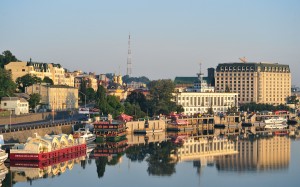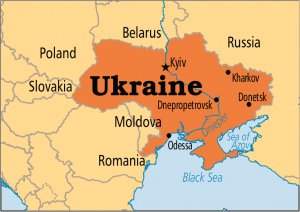 In the past ten years, we’ve seen quite a lot of political crisis and revolution that has one way or another affected the global community and political landscape.
In the past ten years, we’ve seen quite a lot of political crisis and revolution that has one way or another affected the global community and political landscape.
There’s Egypt, Libya, Syria, Venezuela, and now Ukraine. Some call it as Ukrainian Revolution while others refer to it as a case of rebellion and coup d’etat. Actually, it’s a matter of which side people are.
Before we look at the events surrounding the crisis in this eastern European nation, let’s have a quick look at its political background as a nation.
Ukraine Politics: Historical Perspective
Strategically located in between Europe and Russia, Ukraine is considered as the largest country entirely within Europe.
Politics in the country is highlighted by the presidential representative democratic republic framework. It also enjoys a multi-party system, something very common in democratic settings. The executive power of government is exercised by the Cabinet while legislative power is in the hands of the Verkhovna Rada or the parliament.
Just like most democracies, political scholars describe the country’s political system as very weak and fractured. This observation is largely attributed to the presence of personal ideologies that overshadow the essence of democracy. One very obvious manifestation of this is the frequent issues surrounding the inability of the judiciary, even the media, to hold corrupt politicians accountable.
And because of the kind of framework the government is relying upon, the same is largely regarded as over-centralized. For many, this is because the system is seen as a legacy of the Soviet system with a mixture of the constant fear of separatism.
Later, we will be discussing the east-west divide that has crippled the country and eventually led to the current crisis. But as we look at Ukraine’s history, the problem has been always there. In fact, this divide has shaped everything up to this day.
Eastern Ukraine became a part of the Russian imperial rule in the late 17th century while the western part was to follow suit later on. This historical fact explains why after the disintegration of the former USSR, most people in the east have always been supportive of politicians with Russian backing. Western Ukraine on the other hand experienced centuries of being under control by different European powers, particularly Poland and Austro-Hungary.
This is the reason why people in this region are more inclined to supporting European-leaning politicians. Also, the east has more Russian-speaking and orthodox population while the west is home to more Ukrainian-speaking and Catholic people.
Ukrainian Revolt?
It seems like a revolution in today’s era isn’t true anymore. The concept was used to be borne out of fighting for an ideology and what is right. But today, it’s more of fighting for vested interests and the opposition to the government’s administration of a nation. This seems to be the case for Ukraine.
The so-called revolution started with various “minor” events of civil unrests and protests in the capital of Kiev. The protests were part of the Euromaidan protest movement against the incumbent government. But unlike the previous arguments and mundane protests one will often see in a democratic setting, this one is for the books. What we mean is everything seemed to escalate rapidly and suddenly, the government fell.
The elected president, Viktor Yanukovych eventually left the capital and went on to ask Moscow’s aid. He became a wanted person in his own country after being accused of killing dozens of protesters. But the conflict didn’t really end when Yanukovych stepped down. While there’s a new government, Russian forces looked to retaliate in favour of the fallen government by occupying Crimea, a region in Ukraine that has always seen large presence of Russian forces.
While the rest of the world is talking about a successful revolution, Russia’s Vladimir Putin and the deposed Ukrainian president, Viktor Yanukovych deems it as a coup d’etat, which many don’t know is a crime committed against the nation.
Interesting (Intriguing) Facts
- President (or former) Yanukovych was twice convicted of different crimes during his childhood years. While the country prospered during the Orange Revolution in 2004, everything came spiralling down when he assumed office in 2009. One of his best “moves” as president was to pull out of an EU trade agreement that has been years in the making.
- One of the opposition leaders is a boxing legend, Vitali Klitschko, who himself has strongly expressed ambition to become president.
- McDonald’s in Kiev is the third most crowded McDonald’s in the world! Seriously, how in the world does that become relevant? Actually, the thing is it’s quite ironic considering that of many countries belonging to the former Soviet interests in the Cold War, it looks like Ukraine is one of the few who hasn’t really entirely embraced the Western ideology. McDonalds of course is an exception to this.
Recommended Articles:
Interesting Facts about European Economy


